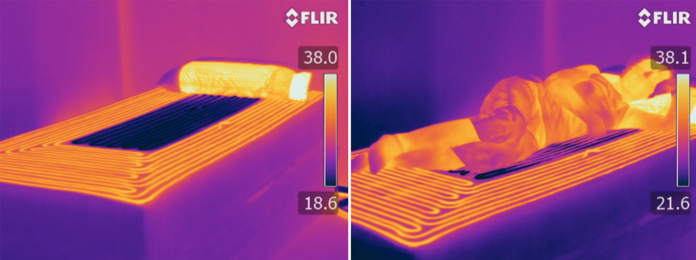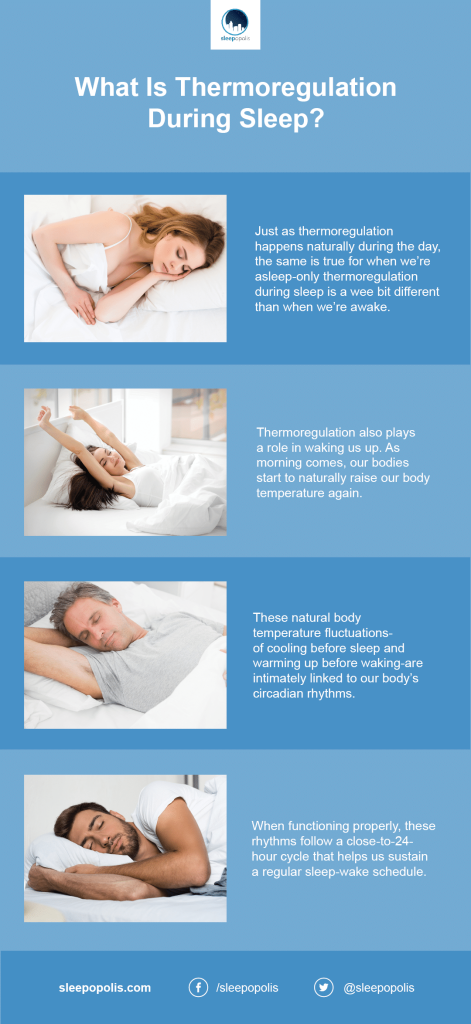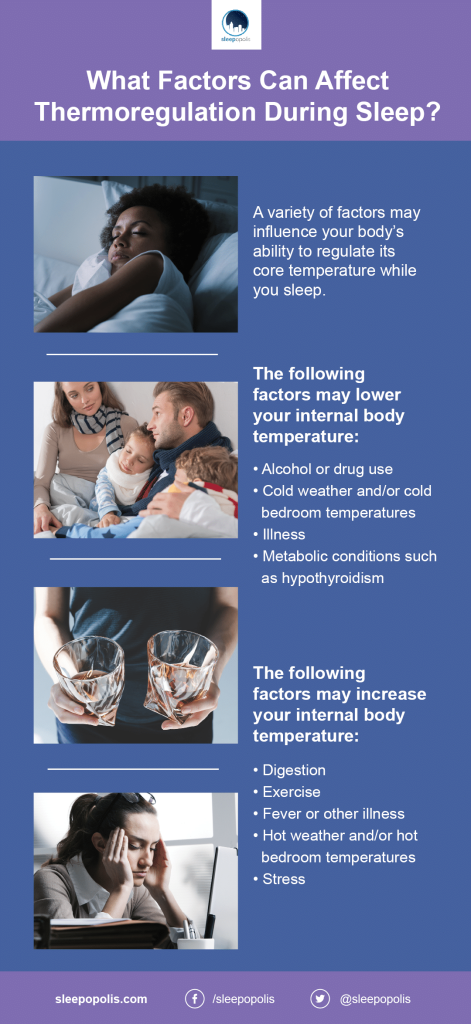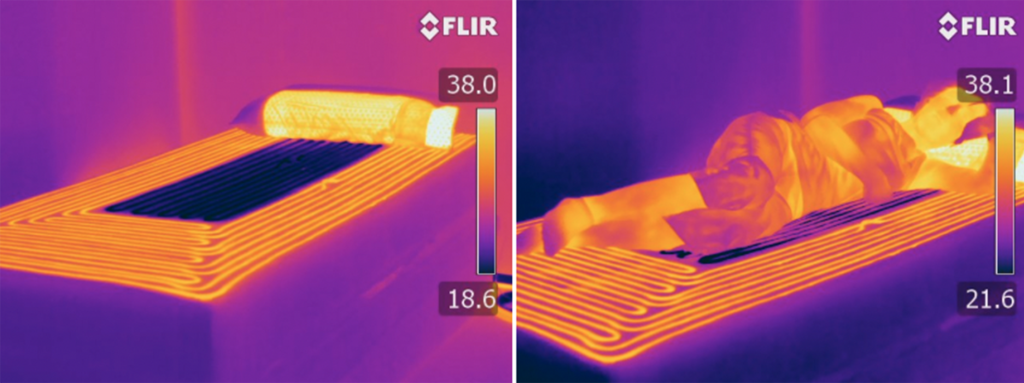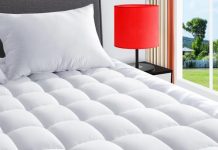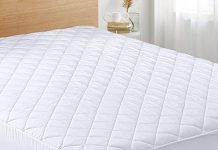Imagine waking up feeling hot and sweaty in the middle of the night, tossing and turning in an effort to find a cool spot on your bed. You might be surprised to learn that your mattress could be playing a significant role in your sleep temperature. The type of mattress you sleep on can impact how well it regulates your body temperature throughout the night, ultimately affecting the quality of your sleep. In this article, we will explore the relationship between mattresses and sleep temperature, and discover how you can choose the right mattress to keep you cool and comfortable all night long.
Review contents
The Importance of Sleep Temperature
Getting a good night’s sleep is essential for overall health and well-being. And while many factors contribute to quality sleep, one often overlooked aspect is sleep temperature. The temperature in which you sleep can significantly impact the quality of your sleep and how well-rested you feel in the morning. In this article, we will delve into the importance of sleep temperature, the impact it has on the quality of sleep, and factors that affect sleep temperature.
Understanding Sleep Temperature
Sleep temperature refers to the level of warmth or coolness in your sleep environment. It is the balance between your body’s internal temperature and the external temperature in your bedroom that influences your ability to fall asleep, stay asleep, and achieve restorative sleep. Your body naturally follows a circadian rhythm, which adjusts your internal temperature throughout the day and night. Understanding and maintaining an ideal sleep temperature is crucial for optimal sleep quality.
The Impact of Sleep Temperature on Quality of Sleep
The role of sleep temperature in determining the quality of your sleep cannot be overstated. Research shows that a comfortable and consistent sleep temperature promotes better sleep efficiency, deeper sleep stages, and longer periods of uninterrupted rest. On the other hand, experiencing an uncomfortable sleep temperature can lead to restlessness, difficulty falling asleep, frequent awakenings, and feeling groggy in the morning. Striking the right balance in sleep temperature can make a noticeable difference in the overall quality of your sleep.
Factors Affecting Sleep Temperature
Various factors contribute to your sleep temperature and can significantly affect your sleep quality. Some of these factors include:
External Temperature:
The temperature in your bedroom plays a crucial role in your sleep temperature. It is generally recommended to maintain a cool bedroom temperature, ideally between 60 and 67 degrees Fahrenheit (15-19 degrees Celsius), as it promotes a more comfortable sleep environment.
Personal Preferences:
Individuals have varying comfort levels when it comes to sleep temperature. Some people prefer a cooler sleep environment, while others may find warmth more comforting. Understanding your personal preferences and finding the optimal sleep temperature for yourself is essential.
Metabolic Rate:
Your body’s metabolic rate affects your internal temperature. Some people naturally have a higher metabolism, leading to a higher body temperature during sleep. Others may have a lower metabolic rate, resulting in a cooler body temperature. It is crucial to consider your metabolic rate when determining your ideal sleep temperature.
How Mattresses Affect Sleep Temperature
Now that we understand the importance of sleep temperature, let’s explore how mattresses can impact your sleep temperature and what factors to consider when choosing the right mattress.
Materials and Construction:
The materials and construction of a mattress can significantly influence its ability to regulate sleep temperature. Certain materials, such as memory foam, have a tendency to retain heat and may cause you to feel uncomfortably warm during the night. On the other hand, mattresses made from breathable materials, such as natural latex or innerspring coils, promote better airflow and help regulate sleep temperature.
Heat Retention:
Heat retention is a significant factor to consider. Mattresses that trap heat can lead to discomfort and disturbed sleep. Memory foam mattresses, for example, are known to retain heat, which can be problematic for individuals who tend to sleep hot. Opting for mattresses with cooling technologies or features that dissipate heat can help ensure a cooler sleep temperature.
Breathability and Airflow:
Good airflow and breathability are crucial for maintaining a comfortable sleep temperature. Mattresses with proper ventilation and airflow allow for better moisture-wicking and heat dissipation. This helps prevent the build-up of sweat and heat, enhancing sleep comfort.
Mattress Types and Sleep Temperature
Different mattress types can have varying effects on sleep temperature. Here’s a closer look at how different mattresses impact sleep temperature:
Innerspring Mattresses:
Innerspring mattresses often provide good airflow due to their coil construction. The coils allow for adequate ventilation, which can help regulate sleep temperature. However, it is essential to choose an innerspring mattress with comfort layers that are not overly heat-retaining, such as natural fibers or cooling gel-infused foam.
Memory Foam Mattresses:
Memory foam mattresses have gained popularity for their ability to contour to the body, providing pressure relief and support. However, traditional memory foam has a reputation for trapping heat. To combat this, many modern memory foam mattresses are infused with cooling gel or have open-cell foam construction, allowing for better breathability and heat dissipation.
Latex Mattresses:
Latex mattresses are known for their durability and responsiveness. They typically have excellent breathability due to the natural open-cell structure of latex foam. Latex allows air to circulate and moisture to evaporate, creating a cool and comfortable sleep surface.
Hybrid Mattresses:
Hybrid mattresses combine the benefits of different materials, typically with a layer of memory foam or latex on top of innerspring coils. The mix of materials in hybrid mattresses often promotes better temperature regulation by allowing airflow while still providing pressure relief and support.
Choosing the Right Mattress for Sleep Temperature
Now that we understand how mattresses can affect sleep temperature, let’s explore some important considerations when choosing the right mattress:
Consider Personal Sleep Preferences:
Taking into account your personal sleep preferences is key. If you tend to sleep hot, opting for mattresses with cooling technologies or heat-dissipating materials is crucial. Conversely, if you tend to feel cold at night, choosing a mattress with better heat retention or using additional insulation layers can help keep you cozy.
Opt for Mattresses with Cooling Technologies:
Many mattresses now come with advanced cooling technologies built into their design. These technologies include gel-infused memory foam, phase-change materials, or even mattress covers with cooling properties. Investing in a mattress with these features can help regulate sleep temperature and keep you comfortable throughout the night.
Evaluate Mattress Firmness and Support:
While sleep temperature is crucial, it’s essential not to overlook other factors such as mattress firmness and support. The right firmness level ensures proper spinal alignment and pressure relief. Finding a mattress that aligns with both your comfort preferences and sleep temperature needs is ideal.
Research and Read Reviews:
Conducting thorough research and reading customer reviews can provide valuable insights into how a specific mattress performs in terms of sleep temperature. Real-life experiences can give you a better idea of what to expect and whether a mattress is suitable for your needs.
Additional Tips for Regulating Sleep Temperature
Aside from choosing the right mattress, here are some additional tips to help regulate sleep temperature:
Use Breathable Bedding:
Opt for breathable, moisture-wicking bedding materials, such as cotton or bamboo. These fabrics allow for better airflow and help regulate body temperature by absorbing sweat and promoting evaporation.
Adjust Room Temperature and Humidity:
Ensure that your bedroom is at an optimal temperature and humidity level for sleep. As mentioned earlier, keeping your bedroom between 60 to 67 degrees Fahrenheit (15-19 degrees Celsius) is generally recommended. Additionally, maintaining a comfortable humidity level can prevent moisture build-up and help you sleep better.
Consider Using Cooling Devices:
If you struggle with maintaining a comfortable sleep temperature, using additional cooling devices such as fans, air conditioners, or even cooling pads can help create a more suitable sleep environment.
Maintain a Healthy Sleep Environment:
Aside from sleep temperature, creating a relaxing and healthy sleep environment can greatly enhance sleep quality. Keeping your bedroom clutter-free, reducing noise, and ensuring darkness can contribute to better overall sleep.
When to Consult a Professional
While making adjustments to your sleep environment and mattress can often resolve sleep temperature issues, there are instances where consulting a professional is necessary:
Persistent Sleep Issues:
If you consistently struggle with sleep temperature regulation and suffer from disrupted sleep, it may be worth seeking advice from a sleep specialist. They can assess underlying factors and provide recommendations specific to your needs.
Underlying Medical Conditions:
Certain medical conditions such as sleep apnea, menopause, hyperthyroidism, or diabetes can affect sleep temperature. If you suspect an underlying medical condition is contributing to sleep disturbances, it is vital to consult a medical professional for a proper diagnosis and treatment.
Medical Sleep Studies:
In some cases, a medical sleep study may be required to diagnose and address specific sleep issues. These studies can provide comprehensive information about your sleep patterns, body temperature regulation, and any potential sleep disorders.
Conclusion
In conclusion, sleep temperature plays a crucial role in the quality of your sleep and overall well-being. Understanding the impact of sleep temperature, how mattresses can affect it, and the factors to consider when choosing the right mattress are important steps in achieving restful and rejuvenating sleep. By taking into account your personal sleep preferences and considering various mattress options, you can create an optimal sleep environment that promotes better sleep temperature regulation. Remember, maintaining a comfortable sleep temperature is just one piece of the puzzle in achieving a good night’s sleep, so be sure to also prioritize other aspects of sleep hygiene for a well-rounded sleep experience.

